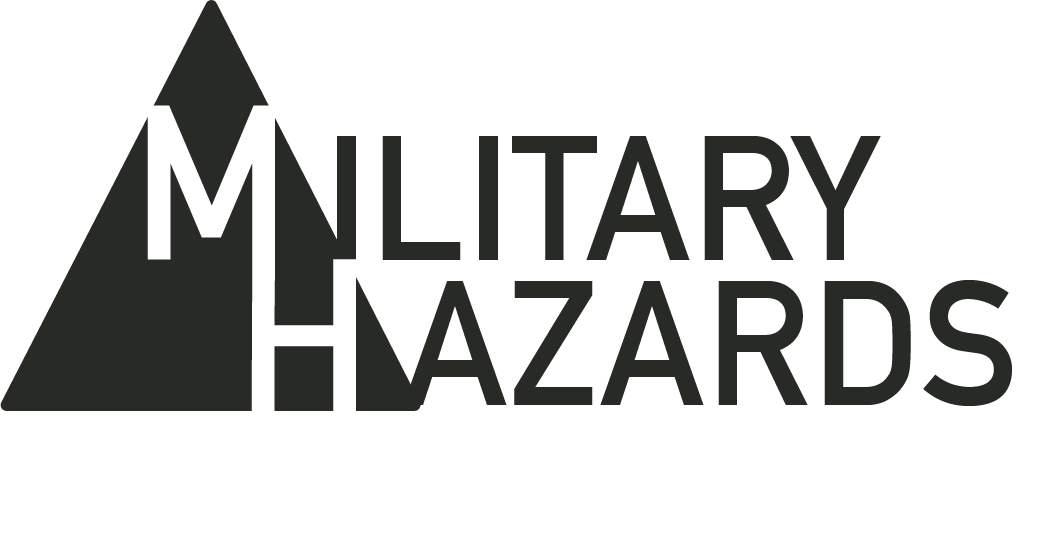Contact Our Legal Partner
"*" indicates required fields

The risk of exposure to lead is a significant occupational hazard for arms-range workers in the military. The high prevalence of lead-based weapons, ammunition, primers, and targets can create a high risk environment for airborne lead particles that are generated when using or handling these materials. Therefore, the frequent handling and/or use of these materials can lead to both short-term and long-term health risks for employees working in such an environment.
Short-term exposure:
It is important to be aware that short-term exposure to lead can cause acute health effects. A few of these effects include:
- Nausea
- Vomiting
- Diarrhea
- Headaches
- Abdominal pain
- Muscle weakness
- High blood pressure
- Fatigue
- Paraesthesia
Notably, many people who have experienced short-term exposure to lead often do not experience any of these symptoms right away.
In more severe cases, however, exposure to lead can cause seizures, coma, and even death. This can occur when someone is exposed to high concentrations of lead in a short period of time. Such an occurrence can include cleaning large weapons or working in a poorly ventilated area.
Long-term Exposure:
Yet and still, it is the long-term exposure to lead that poses the greatest risk to military arms-range workers. This is so because even low levels of exposure over an extended period of time can result in chronic health problems. Some of these problems include:
- Nerve damage
- Reproductive damage
- Slowed developmental growth
- Behavior and learning impediments
- Problems with hearing and speech
- Kidney damage
- Brain damage
Notably, lead is also a known carcinogen. For this reason exposure to it has been linked to an increased risk of cancer.
One of the most significant risks for arms-range workers is the impact that lead has on the nervous system. Long-term exposure to lead can cause peripheral neuropathy. This means that lead can cause damage to the nerves that carry signals to and from the brain and the body. Some symptoms of peripheral neuropathy may include numbness, tingling, and muscle fatigue. Importantly, these symptoms may even become permanent if the exposure continues.
Lead exposure may also impact the reproductive system in a number of different ways. Moreover, such damage affects the reproductive health of both men and women. If women who are or may become pregnant are exposed to lead they are at a higher risk of miscarriage, premature birth, and low birth weight. Children born to mothers exposed to lead during their pregnancy can also experience both developmental delays and behavioral issues.
Kidney damage is another significant, and, unfortunately, all too common health risk associated with long-term exposure to lead. Put simply, lead can cause damage to the kidneys. And, if the damage is severe enough, it could lead to chronic kidney disease. Although this condition may progress slowly over time, it could eventually lead to complete kidney failure which would require either dialysis or a kidney transplant.
Preventing Lead Exposure:
Taking preventative and protective measures while working on an arms range is essential to safeguarding military members from the occupational risks of exposure to lead. The use of personal protective equipment (or, PPE), such as gloves, masks, and goggles, can significantly reduce the risk of lead exposure. Additionally, the use of proper ventilation systems while working in indoor ranges can prevent lead particles from accumulating in the air and being inhaled. It should also be said that regular monitoring of blood lead levels, specifically, is critical to detect early signs of lead poisoning. Lastly the military should provide education and training on each of the risks associated with lead exposure as well as the importance of implementing protective measures for all arms-range workers.
The risk associated with exposure to lead is an occupational hazard for arms-range workers in the military that cannot be overstated. Both short-term and long-term exposure has the potential to cause serious health concerns that are difficult to undo. For all of these reasons, regularly monitoring lead levels in the blood, proper use of PPE, and incorporating effective ventilation systems are all crucial in preventing occupational exposure to lead. Above all, the military has a duty to prioritize the health and safety of its members by implementing effective means and measures for reducing the risk of lead exposure and providing adequate education and training on the dangers associated with lead exposure.
